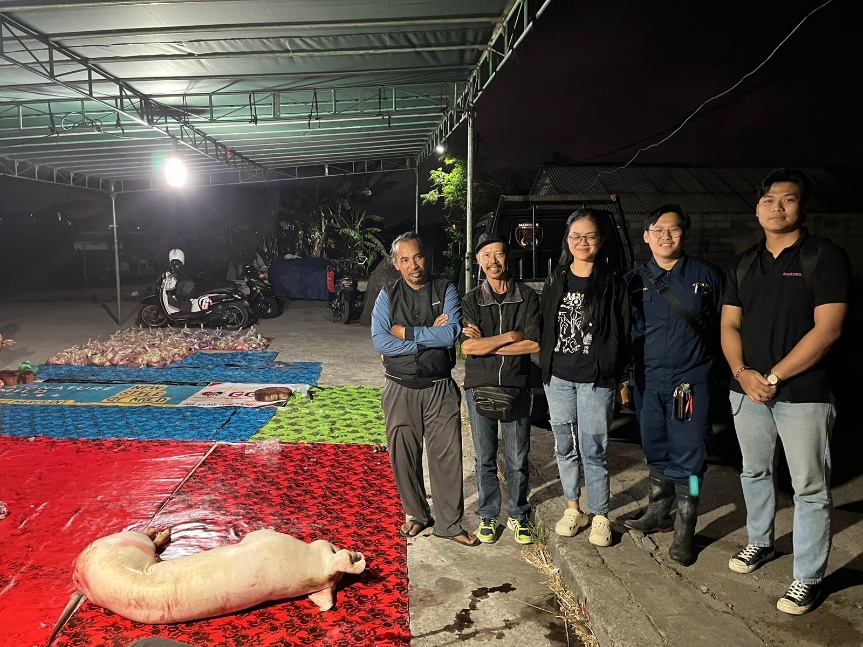The Faculty of Veterinary Medicine, Udayana University, Participates in Ante Mortem Post Mortem Examination for Galungan Festival Alongside the Department of Agriculture and Food of Badung Regency
The ante mortem post mortem (AMPM) examination activities in order to commemorate the Galungan Festival, organized by the Department of Agriculture and Food of Badung Regency, invited the Faculty of Veterinary Medicine (FVM) of Udayana University (Unud) to participate as volunteers in the field.
On Saturday (22/07), the Student Executive Board (SEB) of FVM Unud, together with the relevant department, officially conducted an orientation activity aimed at providing knowledge to PPDH and undergraduate students who will participate in the AMPM examination. The event was attended by 100 students and all faculty members of Veterinary Public Health from FVM Unud who acted as speakers to present material related to the procedures for examining pigs that would be shared with the local community. In addition to presenting material related to examination procedures, the department also explained the division of areas and logistics that would be carried by volunteers from FVM Unud.

Subsequently, on Sunday (30/07), the volunteers, along with veterinarians from the department, went to the field to perform ante mortem examinations and continued with post mortem examinations the following morning. The examinations didn't always go smoothly due to the difficulty in finding some registered locations and some places not performing the slaughter. However, this did not diminish the enthusiasm of the volunteers. This was evidenced by the readiness of the volunteers to assist in other areas where there were many livestock.
During the activity, the volunteers encountered various cases such as liver parasites, hemorrhagic organs, and others. However, these challenges provided new experiences and knowledge for the volunteers, especially since the department's veterinarians and the faculty's veterinarians were ready to help solve the cases faced by the volunteers in the field.
"For the examination activities, it helps students to better distinguish between healthy and diseased organs in pigs. Besides, it helps us become more communicative with the local community and learn how to convey our findings to them," said Lefira when asked about her impressions and takeaways from participating in the activity.
By going into the field and interacting with various parties, it is hoped that the students of FVM Unud will realize the vital role that veterinarians play, as reflected in the veterinarian's motto "Manusya Mriga Satwa Sewaka" (Human, Animal, Nature, and Service). The hope is that the volunteers who will become veterinarians in the future will uphold this motto steadfastly.
Author: Alvin Limanto





